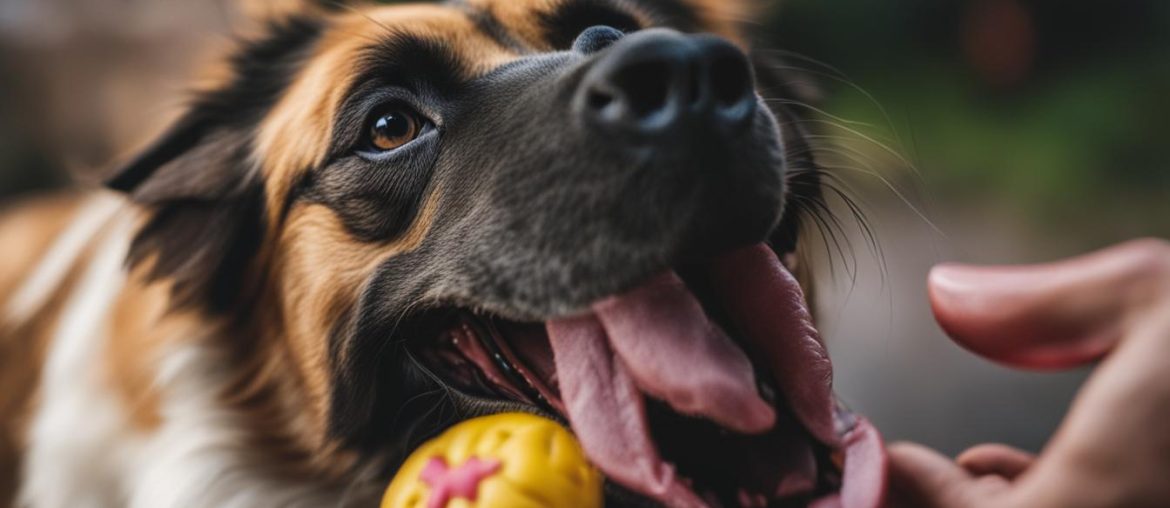As a dog owner, you may have experienced the peculiar behavior of your furry friend sneezing at you. It’s a common sight that often leaves owners wondering why their dogs engage in such behavior. Understanding the reasons behind your dog’s sneezing can provide valuable insights into their communication and behavior.
Canine behavior and communication are complex and diverse. Dogs use a combination of body language, vocalizations, and behaviors to convey their intentions and emotions. Sneezing is one such behavior that dogs employ to communicate various messages, particularly during play.
Key Takeaways
- Dogs may sneeze at their owners as a form of communication during play or other interactions.
- Sneezing can indicate enjoyment, excitement, and friendliness in dogs.
- Excessive or recurring sneezing, accompanied by other concerning symptoms, should be evaluated by a veterinarian.
- Sneezing during play strengthens the bond between dogs and their owners.
- Understanding dog behavior and communication helps interpret their sneezing and overall behavior.
Understanding Dog Behavior and Communication
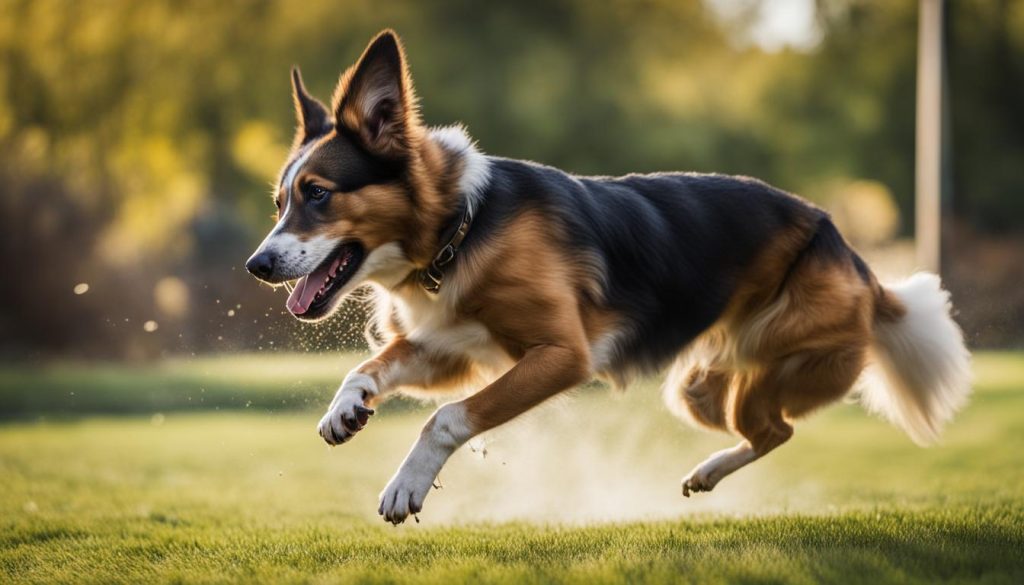
Dogs are highly social animals that communicate with each other and with humans through various means. Understanding their behavior and communication is crucial for building a strong bond and ensuring their well-being.
When it comes to dog behavior, it encompasses a wide range of actions, reactions, and responses. Dogs communicate through a combination of body language, vocalizations, and various behaviors. By observing and interpreting these signals, we can gain valuable insights into their needs, emotions, and intentions.
Canine behavior is influenced by a variety of factors, including genetics, breed traits, past experiences, and environmental factors. It can manifest in behaviors such as barking, growling, wagging their tail, jumping, and yes, even sneezing.
During play, dogs engage in social interaction and use different forms of communication to express their emotions and intentions. Sneezing is one such behavior that can be observed during playtime. While it may seem unusual, sneezing can serve as a form of communication between dogs and between dogs and their human companions.
Playfulness is an integral part of a dog’s social interaction. It helps them bond with other dogs and humans, alleviate stress, and release pent-up energy. Sneezing during play can be seen as a playful gesture, indicating enjoyment, excitement, and a desire to continue the interaction.
By understanding the nuances of dog behavior and communication, we can better interpret their needs and emotions, strengthening our connection with these wonderful creatures. So, the next time your dog sneezes during play, remember that it’s their way of communicating and sharing in the joyful experience.
| Behavior | Communication | Meaning |
|---|---|---|
| Barking | Vocalization | Alert, warning, fear, excitement |
| Growling | Vocalization | Aggression, threats, discomfort |
| Tail wagging | Body language | Happiness, friendliness, excitement |
| Sneezing | Behavior | Playfulness, enjoyment, invitation |
Sneezing as a Playful Gesture
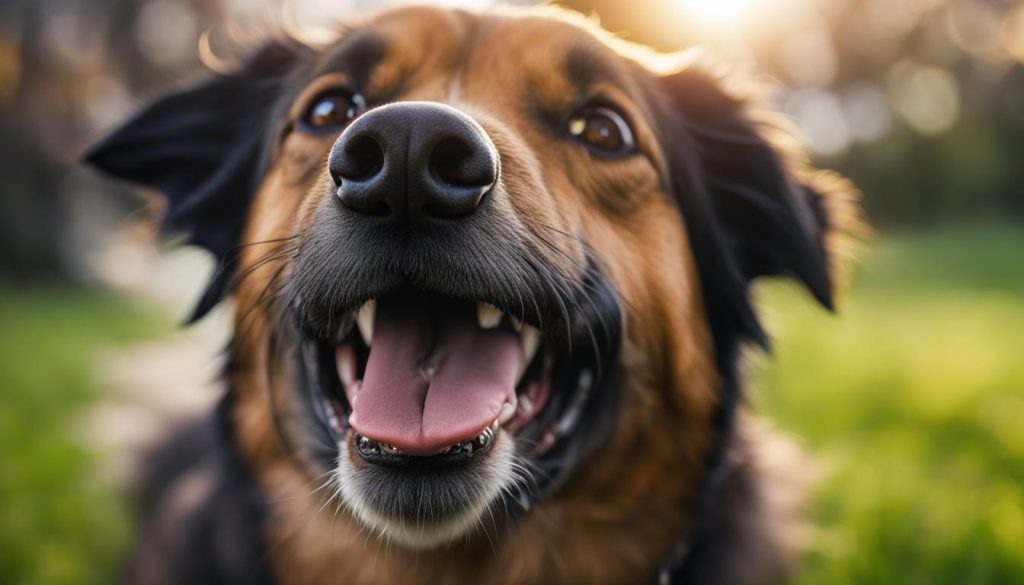
When it comes to dogs, sneezing during play is more than just an involuntary reflex. It is a playful gesture that signifies enjoyment, excitement, and a desire to continue the interaction. Just like humans laugh or giggle when they’re having fun, dogs often express their happiness through sneezing.
When a dog is engaged in a playful activity, such as chasing a ball or play-fighting with their human or canine companion, they may start sneezing as a way to express their enthusiasm. The sneezing is usually accompanied by a wagging tail, which further emphasizes the dog’s joy and eagerness to play.
Next time you see your dog sneezing and wagging their tail during playtime, remember that it’s their way of saying, “I’m having a blast! Let’s keep the fun going!” Dogs have their own unique ways of communicating and sneezing is just one of the many ways they express happiness and excitement.
Possible Reasons for Sneezing during Play
While dogs sneezing during play can be amusing and perplexing, it serves various purposes and can be attributed to several reasons. Understanding these reasons can shed light on this peculiar behavior exhibited by our canine companions.
Dogs may sneeze during play for the following reasons:
- Discharging Excess Energy: Sneezing can be a way for dogs to release pent-up energy accumulated during play. It helps them reset and continue the playful interaction with their human or canine playmates.
- Signaling Friendly Intentions: Sneezing can also serve as a friendly signal from dogs. It can convey their willingness to engage in playful activities and indicate that they are enjoying the interaction.
- Mimicking Canine Behaviors: Dogs are natural imitators, and during play, they often mimic various behaviors displayed by their playmates. Sneezing can be one such behavior that dogs pick up and incorporate into their play, enhancing the overall enjoyment and social connection.
- Sensory Stimulation: Dogs have an incredibly keen sense of smell, and when they play, they often engage in sniffing and exploring their environment. Sneezing can be a result of sensory stimulation from inhaling particles, scents, or simply the excitement of the play session itself.
It’s worth noting that while these are common reasons for sneezing during play, each dog is unique, and individual factors may contribute to this behavior. Therefore, it’s important to consider the context, accompanying signs, and overall well-being of your furry companion when interpreting their sneezing behavior during play.
| Reasons for Sneezing during Play | Description |
|---|---|
| Discharging Excess Energy | Sneezing helps dogs release built-up energy during play. |
| Signaling Friendly Intentions | Sneezing can be a way for dogs to express their friendly intentions during play. |
| Mimicking Canine Behaviors | During play, dogs may imitate various behaviors, including sneezing, from their playmates. |
| Sensory Stimulation | Sneezing can be a response to sensory stimulation from sniffing, inhaling particles, or general excitement during play. |
Recognizing Normal Play Sneezing vs. Concerning Signs
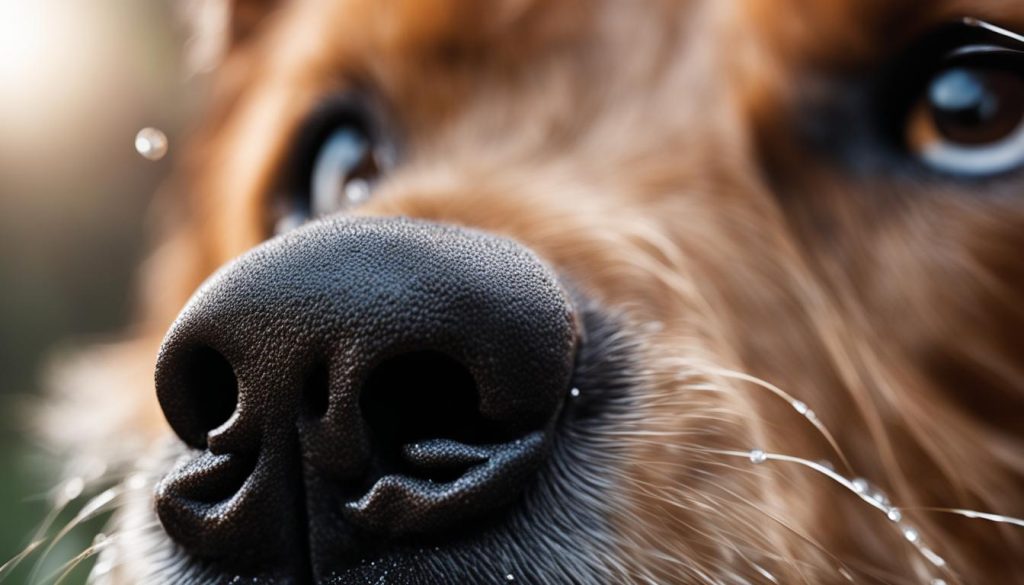
While sneezing during play is typically harmless and a natural part of canine behavior, it’s important to be aware of any excessive or recurring sneezing, especially when accompanied by other concerning symptoms in dogs. Excessive sneezing in dogs could be indicative of an underlying health issue that requires further evaluation and treatment from a veterinarian.
Recurring sneezing in dogs might be a cause for concern as it could suggest a chronic respiratory problem or an allergic reaction. It’s essential to pay close attention to the frequency, duration, and intensity of the sneezing episodes in order to determine if veterinary intervention is necessary. Additionally, observing other symptoms such as nasal discharge, coughing, wheezing, or difficulty breathing can provide valuable clues about the cause of the sneezing and help guide further investigation.
Concerning symptoms in dogs that should not be ignored include:
- Persistent and severe sneezing that lasts for an extended period of time
- Excessive nasal discharge (clear, colored, or bloody)
- Coughing, wheezing, or difficulty breathing
- Loss of appetite or weight loss
- Lethargy or lack of energy
If you notice any of these symptoms in conjunction with excessive or recurring sneezing in your dog, it is highly recommended to consult a veterinarian for a comprehensive evaluation. Early detection and proper treatment can help prevent further complications and ensure your dog’s well-being.
The Joyful Nature of Canine Interaction
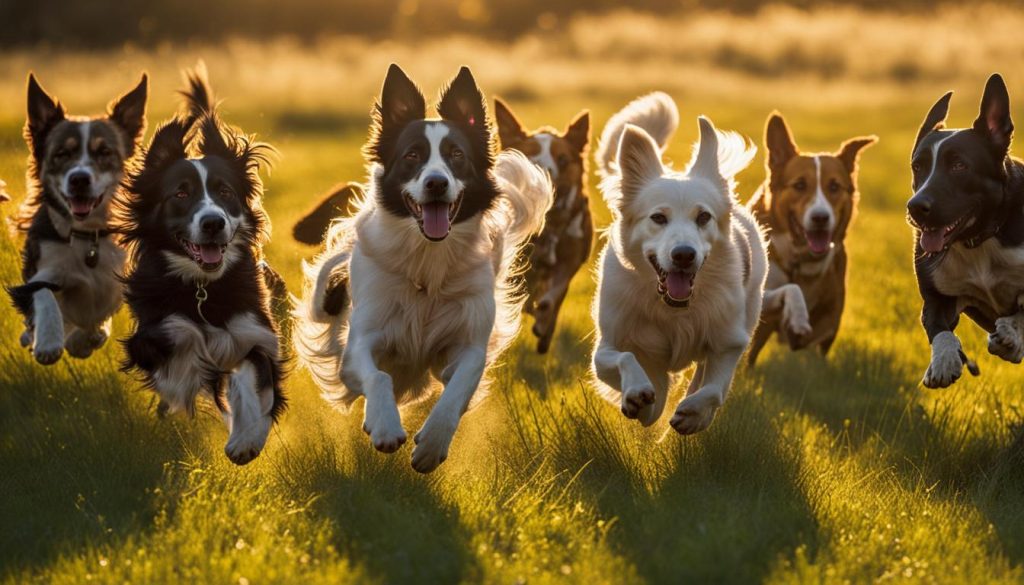
Understanding why dogs sneeze during play adds another fascinating aspect to the complex world of canine interaction. It showcases the joyful and expressive nature of dogs.
Dogs have a remarkable ability to communicate and connect with humans and other animals. Their playful behavior, including sneezing during play, reflects their joyful nature and love for social interactions.
When dogs engage in play, they demonstrate their enthusiasm, happiness, and excitement through various behaviors. Among these playful gestures is sneezing, which serves as a form of communication and expression.
By sneezing during play, dogs convey their enjoyment and invite others to participate in the fun. It is their way of signaling that they are having a good time and encouraging continued interaction.
Observing dogs sneezing during play reminds us of the profound joy they find in simple moments of connection. It highlights the unique bond between dogs and humans, as well as the rich complexity of canine social dynamics.
As dog owners, it’s important to appreciate and nurture this joyful nature of dogs. Engaging in play and understanding their communication cues can strengthen the bond between humans and their canine companions.
In the next section, we will explore the different aspects of sneezing during play and its role in fostering a positive and harmonious relationship with our furry friends.
Sneezing During Play as a Natural Behavior
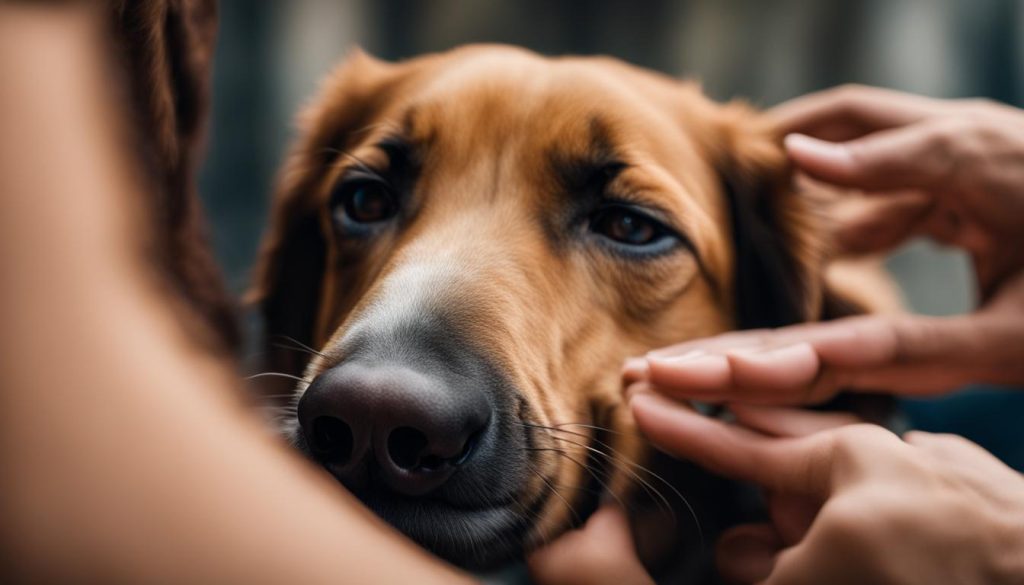
Sneezing during play is a normal behavior in dogs. It is a fascinating aspect of their natural sneezing behavior that showcases their joyful and expressive nature. Dogs often sneeze during play to release excess energy, communicate friendly intentions, and even mimic other canine behaviors. This behavior can be observed when dogs engage in playful interactions with their owners or fellow dogs.
During play, dogs may get caught up in the excitement of the moment, and sneezing becomes a natural part of their behavior. It is their way of expressing their enjoyment and letting their playmates know that they are having a great time. Sneezing can also serve as a means of communication, signaling that the interaction is friendly and non-threatening. This behavior helps maintain a positive play environment and enhances the bond between dogs and their playmates.
Furthermore, sneezing during play can also be a form of mimicry. Dogs are known for their ability to imitate and learn from each other. They may pick up certain behaviors, including sneezing, from their playmates as a way to build rapport and establish social connections.
Overall, sneezing during play is a natural and common behavior in dogs. It adds another layer of complexity to their communication and interaction with humans and other dogs. As dog owners, it is important to recognize and appreciate this unique aspect of their behavior, as it contributes to the joyful and fulfilling bond we share with our canine companions.
Other Reasons for Dog Sneezing
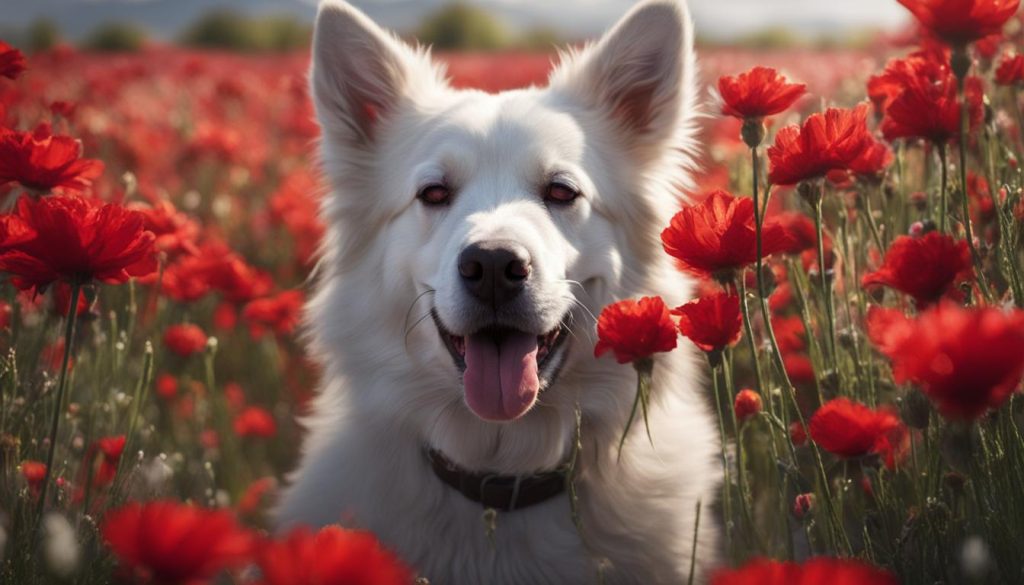
Aside from play behavior, there are other reasons why dogs may sneeze. It is important to consider these factors to determine the cause of sneezing in your furry friend.
Allergies
Just like humans, dogs can be susceptible to allergies that can trigger sneezing. Common allergens include pollen, dust mites, mold, and certain foods. If you notice your dog sneezing frequently, especially in certain environments or seasons, allergies may be the culprit.
Excitement
Some dogs sneeze when they are excited or happy. This behavior is known as “excitement sneezing” and is typically harmless. The sneezing is a result of the dog’s heightened emotions and is often accompanied by a wagging tail and playfulness. It’s a charming way for dogs to express their joy and enthusiasm.
Sensory Stimulation
Dogs have a keen sense of smell, and when they encounter strong scents, it can trigger sneezing. Sniffing various scents or being exposed to strong odors such as cleaning products or perfumes can lead to sneezing. It’s their way of clearing their nasal passages or reacting to the stimulation.
To better understand the cause of your dog’s sneezing, observe the accompanying signs and context. If the sneezing is persistent, excessive, or accompanied by other concerning symptoms, it is advisable to consult a veterinarian for further evaluation.
When to Seek Veterinary Advice
If your dog’s sneezing becomes excessive, is accompanied by other concerning symptoms, or becomes a recurring pattern, it is recommended to consult a veterinarian for evaluation and potential treatment. While sneezing during play is typically harmless, persistent or abnormal sneezing could indicate an underlying health issue that requires professional attention.
A veterinary evaluation for sneezing in dogs is essential to determine the underlying cause and provide appropriate treatment. A veterinarian will conduct a thorough examination of your dog, considering their medical history and symptoms. This evaluation may include:
- Physical examination: The veterinarian will examine your dog’s nose, throat, and respiratory system to assess any signs of inflammation, infection, or structural abnormalities.
- Diagnostic tests: Depending on the severity and duration of the sneezing, the veterinarian may recommend additional diagnostic tests such as blood work, allergy testing, or X-rays to identify any underlying conditions.
Once the cause of your dog’s sneezing is determined, the veterinarian will recommend an appropriate treatment plan. Treatment options may include:
- Medications: The veterinarian may prescribe medications such as antihistamines, nasal sprays, or antibiotics to alleviate symptoms and treat any underlying infections or allergies.
- Environmental modifications: If allergies are identified as the cause of your dog’s sneezing, the veterinarian may advise making changes to their environment, such as reducing exposure to allergens or using air purifiers.
- Surgical intervention: In some cases, surgical intervention may be necessary to address structural abnormalities that are causing chronic sneezing.
Remember, it is important to follow the veterinarian’s recommendations and never administer medications intended for humans to your dog without professional guidance. Seeking veterinary advice ensures the well-being and health of your beloved canine companion.
Causes and Treatment Options for Dog Sneezing
| Cause | Treatment Options |
|---|---|
| Allergies | Antihistamines, nasal sprays, environmental modifications |
| Infections | Antibiotics, nasal sprays |
| Structural abnormalities | Surgical intervention |
| Foreign objects | Removal by a veterinarian |
Strengthening the Bond with Your Dog
Building a strong bond with your dog is essential for a fulfilling and harmonious relationship. The bond between dogs and their owners is special, characterized by trust, love, and companionship. Understanding how to strengthen this bond can lead to a more profound dog-human connection.
Sneezing during play is one way that dogs communicate and interact with their owners. It creates a positive association with playtime and enhances the social connection between humans and dogs. When your dog sneezes during play, it signifies their enjoyment and excitement, inviting you to continue the fun.
Playing with your dog not only provides physical exercise but also stimulates their mental well-being. It strengthens the bond between you, as you engage in joyful and interactive activities together. By embracing your dog’s sneezing behavior during play, you show them that you understand their communication and are actively participating in their world.
Here are a few ways to further strengthen the bond with your dog:
- Quality time: Dedicate regular quality time with your dog, engaging in activities they enjoy. This could be going for walks, playing fetch, or simply cuddling on the couch. The more time you spend together, the stronger your bond will become.
- Training sessions: Training your dog not only teaches them obedience but also enhances the bond between you. Positive reinforcement and rewards create a sense of trust and cooperation.
- Physical touch: Dogs love physical affection, whether it’s a gentle pat on the head, a belly rub, or a scratch behind the ears. Regular physical touch helps build a sense of security and strengthens the emotional connection with your dog.
- Communication: Dogs thrive on clear communication. Use consistent verbal cues and body language to convey your expectations and praise their good behavior. This helps foster understanding and strengthens the bond between you.
- Routine and consistency: Establishing a routine and being consistent in your interactions with your dog provides stability and security. Dogs feel more connected and comfortable when they know what to expect from their daily activities.
Remember, strengthening the bond with your dog is a journey that requires time, patience, and love. Embrace their sneezing behavior during play as a delightful form of communication and a chance to deepen your connection. The more you invest in building a strong bond, the more rewarding and fulfilling your relationship with your canine companion will become.
Wrapping Up
Sneezing during play is a fascinating behavior observed in dogs. It is a normal and playful way for our furry friends to communicate, release energy, and express their enjoyment. By understanding this canine sneezing behavior, we can gain valuable insights into their communication and behavior.
Dogs use a combination of body language, vocalizations, and behaviors to interact with humans and other dogs. Sneezing during play is one such behavior that serves as a friendly gesture and an invitation to continue the joyful interaction. It is a unique form of communication that adds depth and richness to the bond between dogs and their owners.
Next time you see your dog sneezing during play, remember that it is a natural and normal behavior. It helps dogs convey their excitement, discharge excess energy, and signal their friendly intentions. Embracing and appreciating this adorable behavior allows us to better connect with and understand our beloved four-legged companions.
FAQ
Why does my dog sneeze at me?
Dogs may sneeze at their owners as a form of communication. This behavior is often seen during play and is considered a playful gesture.
Is sneezing during play a normal behavior in dogs?
Yes, sneezing during play is a normal and playful behavior in dogs. It is a way for them to communicate, release energy, and express their enjoyment.
What are the reasons for dog sneezing at their owner?
Dogs may sneeze at their owners during play to discharge excess energy, signal friendly intentions, mimic other canine behaviors, or as a result of sensory stimulation from sniffing or inhaling particles.
How can I distinguish normal play sneezing from concerning signs?
Normal play sneezing is typically harmless. However, if the sneezing is excessive, recurring, or accompanied by other concerning symptoms, it is recommended to consult a veterinarian for evaluation and potential treatment.
Why is understanding canine behavior and communication important?
Understanding canine behavior and communication allows us to better interpret the behaviors and interactions of our dogs, strengthening the bond between humans and their furry companions.
Are there other reasons for dog sneezing?
Yes, dogs may also sneeze due to allergies, excitement, or sensory stimulation from smelling various scents.
When should I seek veterinary advice for my dog’s sneezing?
If your dog’s sneezing is excessive, recurring, or accompanied by other concerning symptoms, it is recommended to consult a veterinarian for evaluation and potential treatment.
How can sneezing during play strengthen the bond with my dog?
Sneezing during play creates a positive association with play and enhances the social connection between humans and dogs, strengthening the bond between them.


